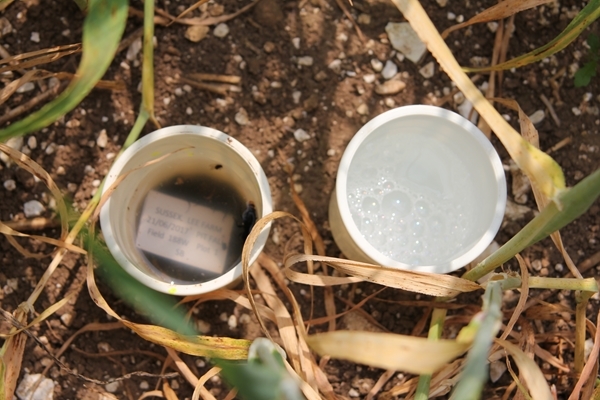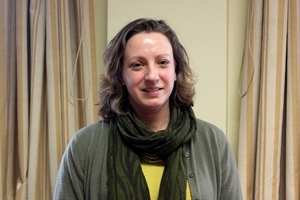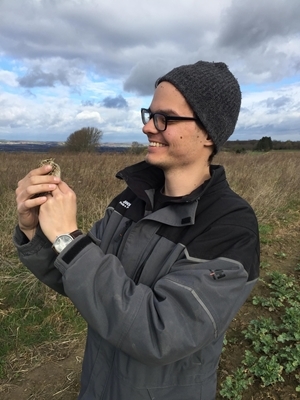
TWO budding scientists have been awarded funding for their projects from the Dick Potts Legacy Fund – a year after the pioneering ecologist sadly passed away.
Manuel Püttmanns will be using the grant to focus on skylark habitat use, while Susan Hammond is researching beetles in Sussex, a project started by Dr Potts.
In 2016, Dr Potts used pitfall traps – a trapping pit for insects – to look at the activity of beetles in the cereal fields on the Game & Wildlife Conservation Trust’s (GWCT) Sussex Study. This was continued in 2017 by GWCT’s farmland ecology team, who ran a series of pitfall traps in a second group of cereal fields, again collecting beetles.
 Now, Ms Hammond, pictured, right, who is completing a MSc in entomology at Harper Adams University, Newport, will take on the identification of beetles from 2017 and collect beetles for a final third year of surveying.
Now, Ms Hammond, pictured, right, who is completing a MSc in entomology at Harper Adams University, Newport, will take on the identification of beetles from 2017 and collect beetles for a final third year of surveying.
These results will be compared to those that Dr Potts and Dr Paul Vickerman reported from pitfalls used in the 1970s, allowing a comparison between the two-time frames.
Meanwhile, Mr Püttmanns, who is undertaking a PhD on skylark ecology at the University of Göttingen, Lower Saxony, Germany, will be looking at the habitat use of individual skylarks through the breeding season and food availability in the farmland in which the skylarks nest.
 Mr Püttmanns, pictured right, is using radio transmitters on nesting skylarks to observe their habitat use and will combine this with insect monitoring to determine the food available to skylarks in their environment. Of particular interest is skylark use of flower blocks for partridges established through the EU-Interreg project, PARTRIDGE (http://www.northsearegion.eu/partridge/)
Mr Püttmanns, pictured right, is using radio transmitters on nesting skylarks to observe their habitat use and will combine this with insect monitoring to determine the food available to skylarks in their environment. Of particular interest is skylark use of flower blocks for partridges established through the EU-Interreg project, PARTRIDGE (http://www.northsearegion.eu/partridge/)
Dr Julie Ewald, head of geographical information systems at GWCT and an advisor to the Dick Potts Legacy Fund, said: “The Fund received several very good applications, with the advisors to the fund selecting two projects that fulfilled the criteria of agro-ecological projects that Dick Potts would have found exciting and worthy of consideration.
“They are also projects being undertaken by young researchers, just starting out on their scientific careers, where the addition of a small amount of funding might make all the difference to the outcome of the projects.”
The fund, set-up shortly after Dr Potts died on March 30 last year by his wife Olga, has raised nearly £17,000.
Dr Potts, who conducted ground-breaking research on agroecology and the grey partridge, was appointed Director-General of the Game Conservancy Trust (the predecessor of the Game & Wildlife Conservation Trust) in 1993 – before retiring in 2001.
Funds are still available, and applications will re-open on September 1st, 2018.
To donate, visit https://www.justgiving.com/campaigns/charity/gameandwildlifeconservationtrust/dickpottsmemorial
Notes to editors
The Game & Wildlife Conservation Trust – providing research-led conservation for a thriving countryside. The GWCT is an independent wildlife conservation charity which has carried out scientific research into Britain’s game and wildlife since the 1930s. We advise farmers and landowners on improving wildlife habitats. We employ more than 60 post-doctoral scientists and other research staff with expertise in areas such as birds, insects, mammals, farming, fish and statistics. We undertake our own research as well as projects funded by contract and grant-aid from government and private bodies.
For information, contact:
Eleanor Williams
Telephone: 07592 025476
Email: press@gwct.org.uk